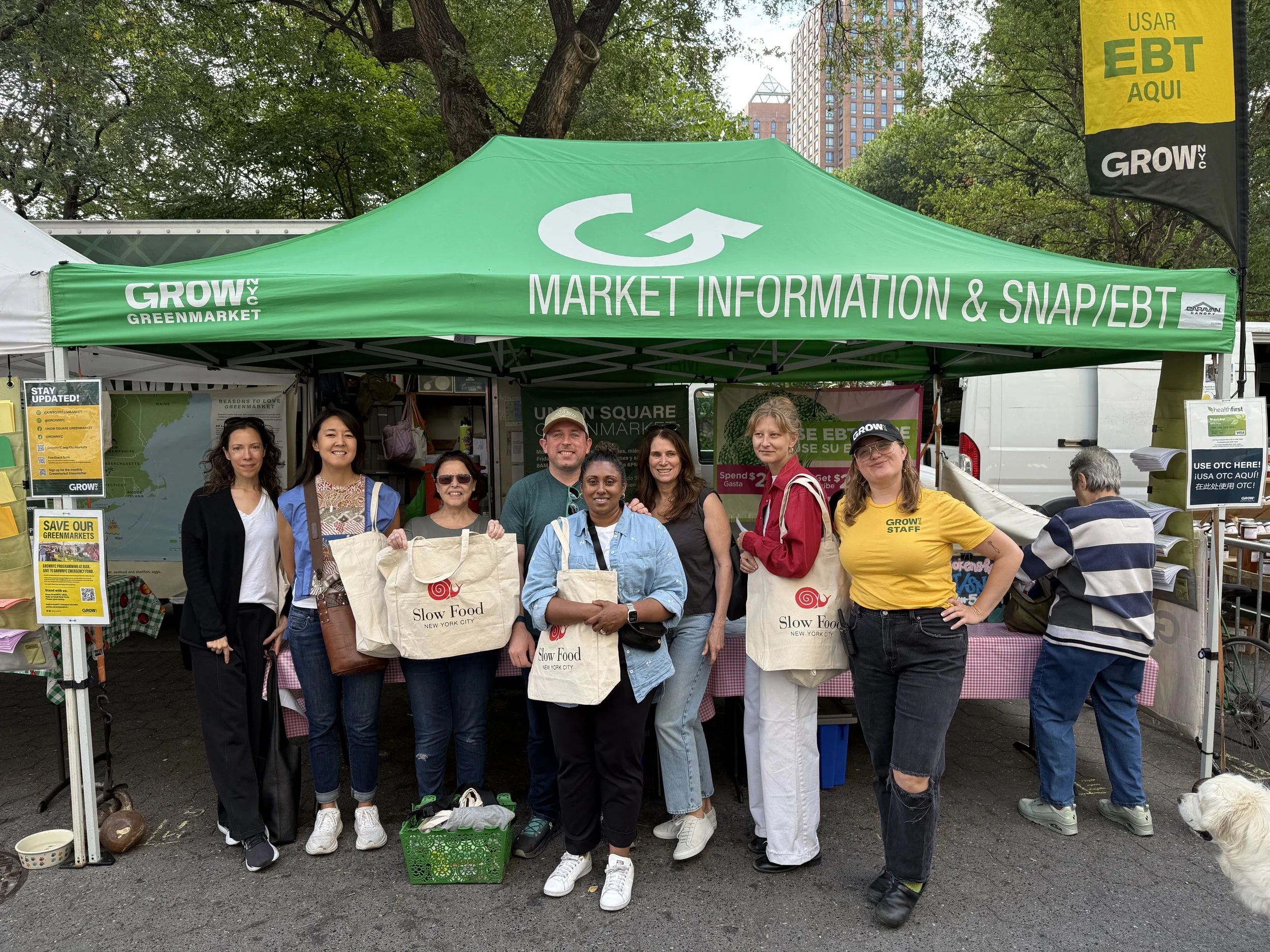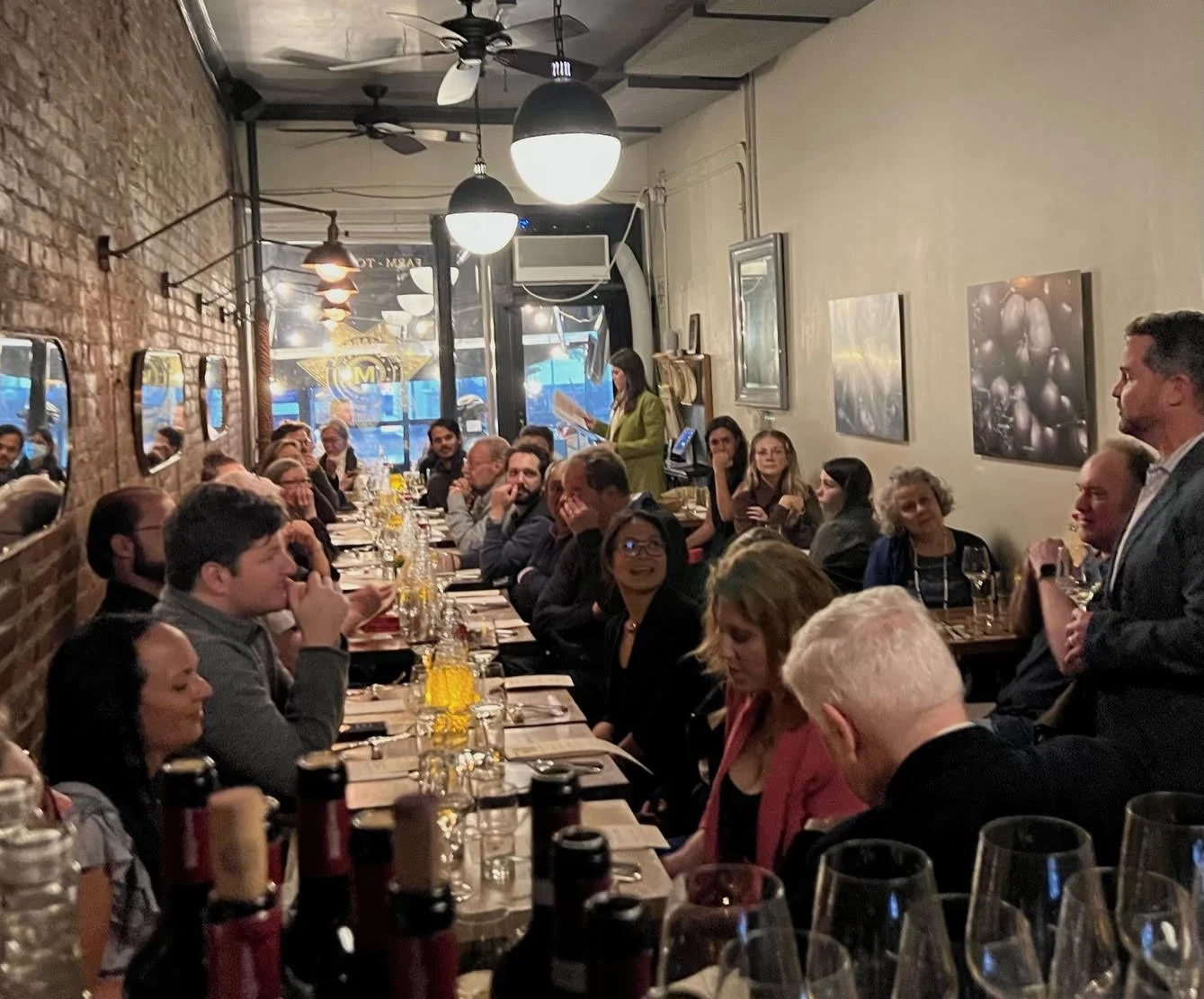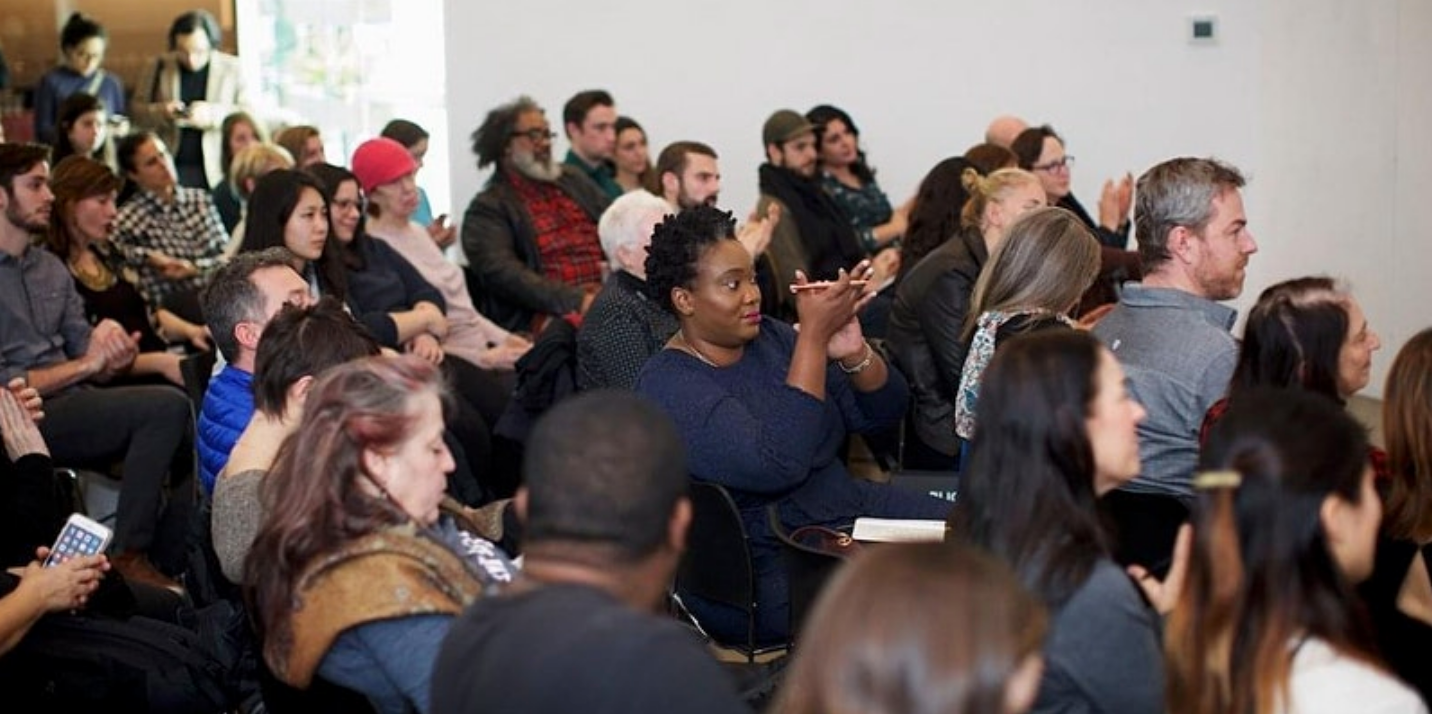By Laura Hoffman, Slow Food NYC Board Member
Earlier this month, Slow Food NYC hosted a guided tour of the Union Square Greenmarket — and it was a delicious success! We began with a history and deep dive into GrowNYC, one of our newest Snail of Approval recipients, learning about the requirements for market participation and the values behind supporting local farms.
The tour was designed by Charlie Marshall, Slow Food NYC board member and proprietor of The Marshal, a farm-to-table restaurant in Hell’s Kitchen. Charlie introduced us to some of his restaurant’s trusted vendors and board members Anna Gorshkova and Laura Hoffman led the participants through the amazing line-up of stands!
Slow Food NYC at the Union Square Greenmarket
First stop: Mushroom Queens, where Jeffrey wowed us with his passion for fungi. Grown organically in Queens, their mushrooms are as local as it gets. He shared tips for cooking, foraging, and avoiding poisonous look-alikes, reminding us not to pet the lion’s mane! We left with mushroom jerky and a new appreciation for the magical world of fungi.
Next, we buzzed over to Andrew’s Honey, run by Andrew Coté, a fourth-generation beekeeper, who’s family maintains beehives not only in all five boroughs of New York City, including atop landmark buildings in Manhattan, the grounds of United Nations Headquarters, and the Queens County Farm Museum. We learned the differences between honeycomb, raw honey, and crystallized, and the many varietals including varying flavors derived from the nectars of different plants such as blueberry and tupelo. Just like everything else in New York, the honeys were distinguishable by their neighborhood of origin – Bushwick, Staten Island, and Washington Square Park Honey were all bottled and labeled separately maintaining the unique features of their local. Each jar tells the story of New York’s urban bees with hives perched on rooftops across the city.
From sweet to savory, we headed to Tonjes Farm Dairy, where Mary Tonjes shared the family’s history. Originally a dairy milk farm in Callicoon, NY, shifting regulations led them to focus on artisanal cheeses. Today they produce dozens of varieties, along with buttermilk and kefir. Sampling their creamy cheeses was a highlight — especially paired with Andrew’s honey.
Then came a crowd-pleaser: Deep Mountain Maple, and not just because he gave us maple candy! Straight from the hills of Vermont, Lee Houck described how maple trees are tapped during the perfect window when warm days meet cold nights. No trees are harmed — he likened it to “donating blood.” Surprisingly, it takes about 40 gallons of sap to make just 1 gallon of syrup! We left a little stickier than when we started.
Finally, we wrapped up at Hawthorne Valley Farm, a diversified biodynamic farm in Ghent, NY. Judith Madey shared the farm’s deep commitment to soil health, education, and community. Beyond their produce, they run a school, summer camps, and farm education programs to connect kids and families to food at its source. Our Slow Food totes were soon overflowing with rainbow-colored produce: tomatoes, zucchini, corn, eggplant, onions, garlic, and more.
It was a fun day of learning, tasting, and connecting with the people behind our food. The tour was a reminder of what Slow Food is all about — knowing where our food comes from, celebrating the farmers and artisans who grow and make it, and savoring the flavors of the season. We left with bags full of good, clean, fair food and a deeper connection to the people who bring it to our tables.
For me, the best part was coming home, cooking with my market finds, and remembering what it means to eat healthy, happily. 🍅🥗











